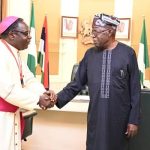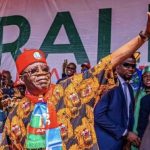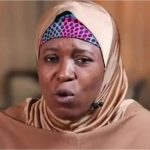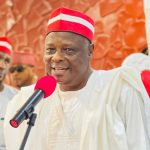What began as a routine political visit by a federal lawmaker to the Jigawa State Government’s Citizens Engagement Program in Kirikasamma Local Government Area on Sunday, October 12, 2025, turned into an unexpected lesson in modern civic expression.
The youths in the area voiced their frustrations in a style that blended protest with popular Gen Z slang.
The Federal Lawmaker representing Birniwa/Guri/Kirikasamma Federal Constituency, Dr. Fulata, met an uneasy crowd as dozens of young people gathered to express their anger over what they described as “years of neglect and lack of engagement from their representative.”
Witnesses said the atmosphere became tense when the lawmaker attempted to address the youths, who interrupted his speech with chants and slang-laden remarks such as “Big Cap, Honorable!” — a Gen Z term meaning “lies” or “false promises.”
Some carried placards with inscriptions like “We only see you during elections” and “No vibes, no votes.” Others accused the lawmaker of focusing on political events while neglecting social development issues affecting the community’s youth.
Muhammed Umar, a young onion farmer, told our correspondent that Fulata rarely visits the community, even to offer condolences or support during times of grief for his own constituents.
Another aggrieved youth, Ibrahim Adam, said the appearance of the lawmaker in the community with a team of armed hunters and gunmen was a clear manifestation of poor leadership.
“If he trusts himself and the community he emerged from, why should he come with armed hunters and private security guards, as if he is waging a war on us?” Adam asked angrily.
Security personnel and community elders did their best to intervene to prevent the situation from escalating into violence and to refocus attention on the main aim of the event.
While some residents condemned the youths’ approach and described it as disrespectful, others saw it as an expression of a changing political culture — one where younger citizens use humor, slang, and digital trends to demand accountability.
A member of the APC in the area, Mrs. Maryam Abubakar, said, “Gen Z is speaking a new political language in Jigawa State. They seem to be using their slang and online culture, which may appear unserious to older politicians, but it reflects deep frustration with governance and exclusion.”
The incident, which has since trended on social media platforms, reignited discussions about the disconnect between politicians and young constituents. Many online users praised the Kirikasamma youths for “speaking truth to power” in a way that resonated with their generation.
Mr. Muhammed Umar, a member of the opposition party (PDP) in Jigawa State, argued that the event highlights a growing challenge for Nigeria’s political class.
“We are witnessing the emergence of a digitally connected, outspoken generation that measures leadership not by rhetoric but by real engagement and results,” he said.
As the chants and slang fade from Kirikasamma’s dusty streets, one message remains clear: Nigeria’s Gen Zs are not just online; they are on the ground — redefining how accountability sounds and looks in the country’s democracy.
Aisha Ahmed writes from Dutse.






